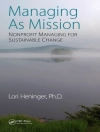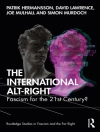Certain events in one’s life, such as marriage, joining the workforce, and growing older, can become important determinants of political attitudes and voting choice. Each of these events has been the subject of considerable study, but in
The Politics of Parenthood, Laurel Elder and Steven Greene look at the political impact of one of life’s most challenging adult experiences—having and raising children. Using a comprehensive array of both quantitative and qualitative analyses, Elder and Greene systematically reveal for the first time how the very personal act of raising a family is also a politically defining experience, one that shapes the political attitudes of Americans on a range of important policy issues. They document how political parties, presidential candidates, and the news media have politicized parenthood and the family over not just one election year, but the last several decades. They conclude that the way the themes of parenthood and the family have evolved as partisan issues at the mass and elite levels has been driven by, and reflects fundamental shifts in, American society and the structure of the American family.
表中的内容
1. Parenthood is Political
2. The Politics of the Changing American Family
3. “Family Values” vs. “Champion of Working Families”: Parenthood, Families, and the Political Parties
4. The Rise of Politicized Moms and Dads: Media Coverage of Parenthood
5. The Political Attitudes of Mothers and Fathers
6. Marriage, Race, and the Politics of Parenthood
7. The Consequences and Future of the Politics of Parenthood
Notes
References
关于作者
Laurel Elder is Associate Professor of Political Science at Hartwick College.
Steven Greene is Associate Professor of Political Science at North Carolina State University.












